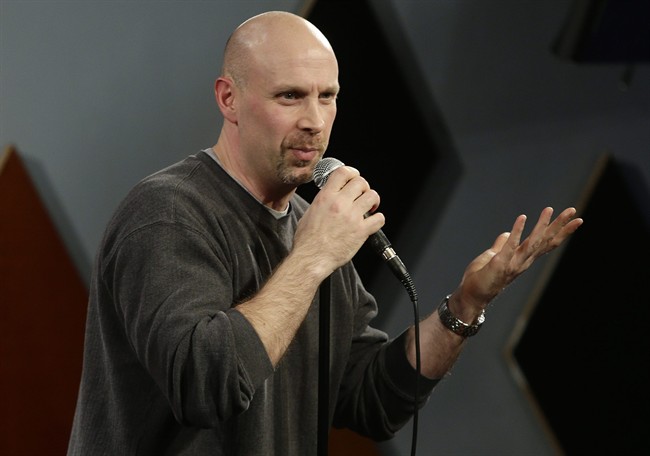NEWARK, N.J. – New Jersey municipal judge Vince Sicari, who is also an established stand-up comedian and actor, resigned Thursday after the state Supreme Court ruled he can’t moonlight as an entertainer.

Sicari told The Associated Press he tendered his resignation after the high court released a unanimous opinion that said his acting and comedy career is “incompatible” with judicial conduct codes and essentially gave him the choice of doing one or the other.
“I’m not surprised by the result, but I’m very disappointed,” Sicari said. “I take great pride in being a judge and to give that up is disappointing.”
The 44-year-old lawyer, whose stage name is Vince August, has carved out a career as a comic and actor, appearing on network television, in New York City comedy clubs and as a warm-up for Comedy Central audiences. He was also a part-time municipal judge in South Hackensack, where he handled things like traffic ticket cases and disorderly persons offences.
Several justices had questioned whether the public could separate Sicari’s position as a judge from roles he has played on the ABC hidden camera show “What Would You Do?” in which he has portrayed homophobic and racist characters. That dilemma played a central role in Thursday’s ruling, as the justices noted that someone tuning into the show might not know that actors were used in the sketches. They applied the same standard for Sicari’s stand-up performances.
“In the course of his routines, Sicari has demeaned certain people based on national origin and religion and has revealed his political leanings,” according to the court’s opinion. “The court cannot ignore the distinct possibility that a person who has heard a routine founded on humour disparaging certain ethnic groups and religions will not be able to readily accept that the judge before whom he or she appears can maintain the objectivity and impartiality that must govern all municipal court proceedings.”
Sicari, who is a member of the Screen Actors Guild and other professional performers’ unions, has said his entertainment work entitles him to health benefits and earns him more than his $13,000-a-year part-time judge salary. He said during the Supreme Court arguments in February that he was equally passionate about both his jobs and reiterated that Thursday.
“I’ve been balancing these professions my entire career,” he said. “I have a passion for all of them. If I didn’t have a passion, this wouldn’t be a Supreme Court case.”
Sicari said he would continue practicing law, which the Supreme Court said in its opinion he is entitled to do and which he has done during the time he was a judge.
___
Follow David Porter at http://www.twitter.com/DavidPorter_AP
___
Associated Press writer Samantha Henry in Newark contributed to this report.



Comments